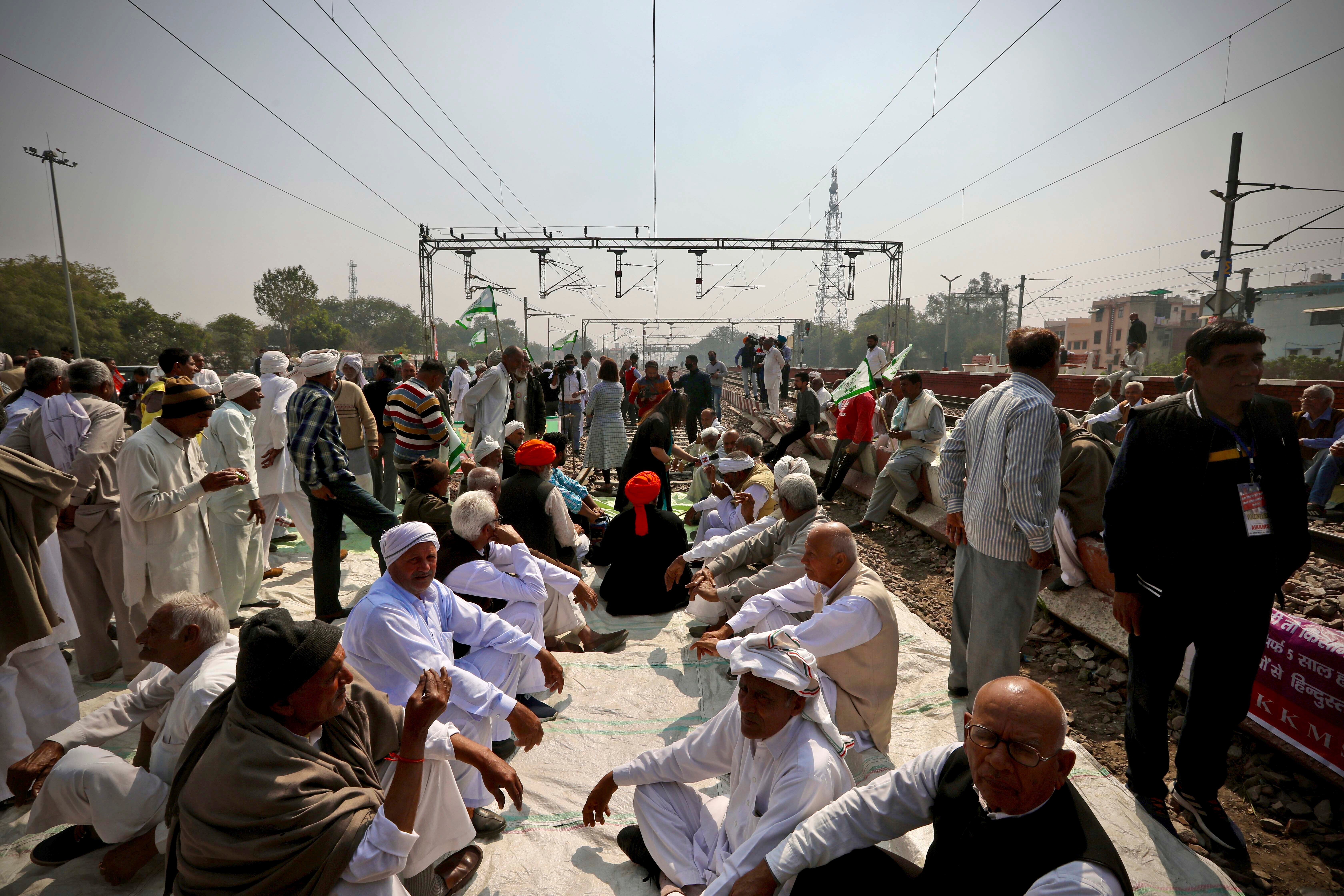Farmers block trains in northern India to protest new laws
Thousands of protesting farmers have blocked trains by sitting on railroad tracks in parts of northern India to press their demand for the repeal of new agricultural reform laws that have triggered months of massive protests

Your support helps us to tell the story
From reproductive rights to climate change to Big Tech, The Independent is on the ground when the story is developing. Whether it's investigating the financials of Elon Musk's pro-Trump PAC or producing our latest documentary, 'The A Word', which shines a light on the American women fighting for reproductive rights, we know how important it is to parse out the facts from the messaging.
At such a critical moment in US history, we need reporters on the ground. Your donation allows us to keep sending journalists to speak to both sides of the story.
The Independent is trusted by Americans across the entire political spectrum. And unlike many other quality news outlets, we choose not to lock Americans out of our reporting and analysis with paywalls. We believe quality journalism should be available to everyone, paid for by those who can afford it.
Your support makes all the difference.Thousands of protesting farmers blocked trains on Thursday by sitting on railroad tracks in parts of northern India to press their demand for the repeal of new agricultural reform laws that have triggered months of massive protests.
Samyukta Kisan Morcha, or Joint Farmers’ Front, organized four-hour blockades of trains at two dozen locations.
Television showed protesters sitting on railroad tracks in Hapur, Modinagar, Kurukshetra and several other places in Haryana, Punjab and Uttar Pradesh states. Railroad authorities halted train movements in the affected areas.
Authorities deployed thousands of security forces at railroad stations and tracks to prevent any violence.
The protesters carried banners and flags denouncing the three laws approved by Parliament in September, which they say will leave them poorer and at the mercy of corporations.
“The farmers have decided that the struggle to get these three laws repealed is connected to our lives, connected to our future, connected to our children and connected to our daily bread. Either we will survive, and our assets will survive, or the country won’t be able to get by as they will not get anything to eat,” said Hari Prakash, a 70-year-old farmer who was blocking a track on the outskirts of New Delhi.
Rakesh Tikait, a farmer leader, said they will not end their protests until the government repeals the laws.
The protests turned violent on Jan. 26, India’s Republic Day, when a group of farmers riding tractors stormed the 17th century Red Fort in New Delhi. Hundreds of police officers and scores of farmers were injured and one protester died.
Tens of thousands of farmers have been camping on the outskirts of New Delhi since November. Eleven rounds of talks between the farmers and Agriculture Minister Narendra Singh Tomar have failed to produce any breakthroughs.
The government says the laws are necessary to modernize Indian agriculture. It has offered to delay their implementation for 18 months to deal with farmer objections. That’s not acceptable to the farmers, who are demanding their repeal.
The farmers believe the legislation will devastate their earnings by ending guaranteed prices for wheat and rice and force them to sell to powerful corporations at cheaper prices.
Tomar said the laws will lead to more private investment in agriculture and raise earnings by setting up warehouses where farmers can store crops and sell them when prices are favorable.